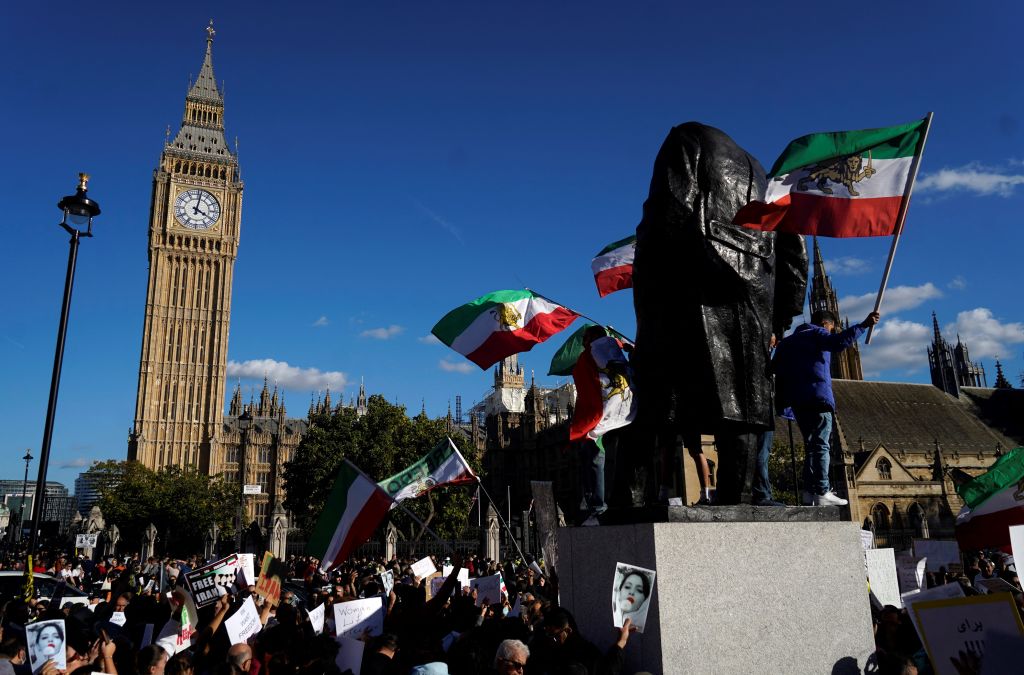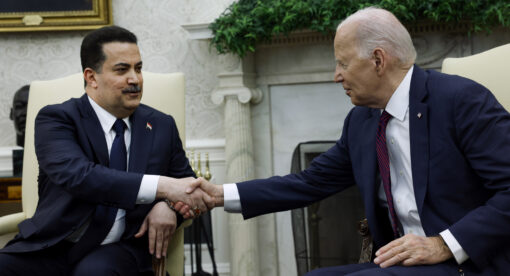In recent years, the United Kingdom has used targeted sanctions to support its efforts to accelerate the goals of gender equality. The U.K. Foreign, Commonwealth and Development Office (FCDO) formalized these efforts in its International Women and Girls Strategy 2023-2030, committing to “make use of United Nations and U.K. sanctions regimes, including working with international partners to take direct action against those responsible for conflict-related sexual violence (CRSV) and the trafficking of women and girls.” Given the disproportionate effect that economic sanctions visit on women and girls around the world, the growing use of sanctions to protect women and advance gender equality necessitates a broader discussion of the need to mainstream gender within the U.K. sanctions policy.
The Women, Peace and Security (WPS) agenda presents itself as an important normative and legal framework for all stages of sanctions policy to enhance both the U.K.’s commitment to human rights, including gender equality and LGBTQ+ rights, and its strategic and wider geopolitical interests. Despite the U.K. serving as the “penholder” on WPS at the United Nations since 2000, its economic sanctions policy has not explicitly drawn on WPS as a means of justifying, advocating, diagnosing, and developing sanctions regulations. There also is no formal training or guidance on mainstreaming gender at the Office of Financial Sanctions Implementation (OFSI) or within His Majesty’s Treasury more widely. It is vital that the U.K. ensure its sanctions programs adequately address the unique experiences of women and girls and are effective in accelerating progress toward women’s security and empowerment.
Assessing the four broad areas where U.K. sanctions and gender equality efforts currently intersect (discrimination on the basis of sex, sexual and gender-based violence, LGBTQ+ rights, and the suppression of civil society spaces) reveals little to no formal integration of the four pillars of WPS in the design, implementation, and assessment of U.K. economic sanctions. Through the integration of the WPS agenda within economic sanctions policy, the U.K. will be better equipped to achieve its stated defense and foreign policy commitments to gender equality and positive peace.
Key Takeaways:
• Sanctions regulations employed with the intent to prevent sex-based discrimination and to support the rights and participation of women and other marginalized groups should be driven and shaped by robust monitoring and reporting mechanisms that use sex- and age-disaggregated data.
• When developing and applying sanctions in response to sexual and gender-based violence, understanding both the nature and political drivers of that violence enables better protection of vulnerable groups and accelerates progress toward more equitable and inclusive political landscapes globally.
• As a major player in the Commonwealth and a country that has spearheaded LGBTQ+ rights in its foreign policy, the U.K. can and should translate rhetoric into reality by developing LGBTQ+-sensitive economic sanctions. Using the pillars of WPS can help the U.K. develop more specific metrics that call for sanctions to further LGBTQ+ rights.
• Considering the U.K. has readily made connections between gender equality and democracy, sanctions can be wielded as a tool to protect the political and civic liberties of women and girls and to support civil society organizations as an integral part of the global WPS agenda and of progress toward gender equality.
Recommendations:
1. His Majesty’s Treasury and the OFSI should integrate the WPS agenda into sanctions design, implementation, and assessment processes.
2. The U.K. government should formalize the use of sanctions to promote accountability for sexual and gender-based violence and the violation of the rights of women and LGBTQ+ persons.
3. The FCDO should work in collaboration with the OFSI to coordinate designation criteria and implementation best practices for sanctions against violators of women’s rights.
4. His Majesty’s Treasury should lead on specific commitments on WPS and sanctions set out in the Delivery Plan in future iterations of the U.K. WPS National Action Plan (NAP).
5. Sanctions implemented to address sex-based discrimination must engage with local civil society and women’s groups.
6. Sanctions in relation to gender-based violence should go beyond CRSV as well as attempt to specify and contextualize the political, military, and/or economic motivations for that violence.
7. The U.K. should use its influence within and outside of the Commonwealth to expand its push for LGBTQ+ rights within sanctions policy and target sanctions in a manner that protects vulnerable groups from backlash.
8. The U.K. should ensure sanctions designed to support civil society and democratic opposition are gender sensitive and consider the agency and needs of women activists and political prisoners.








